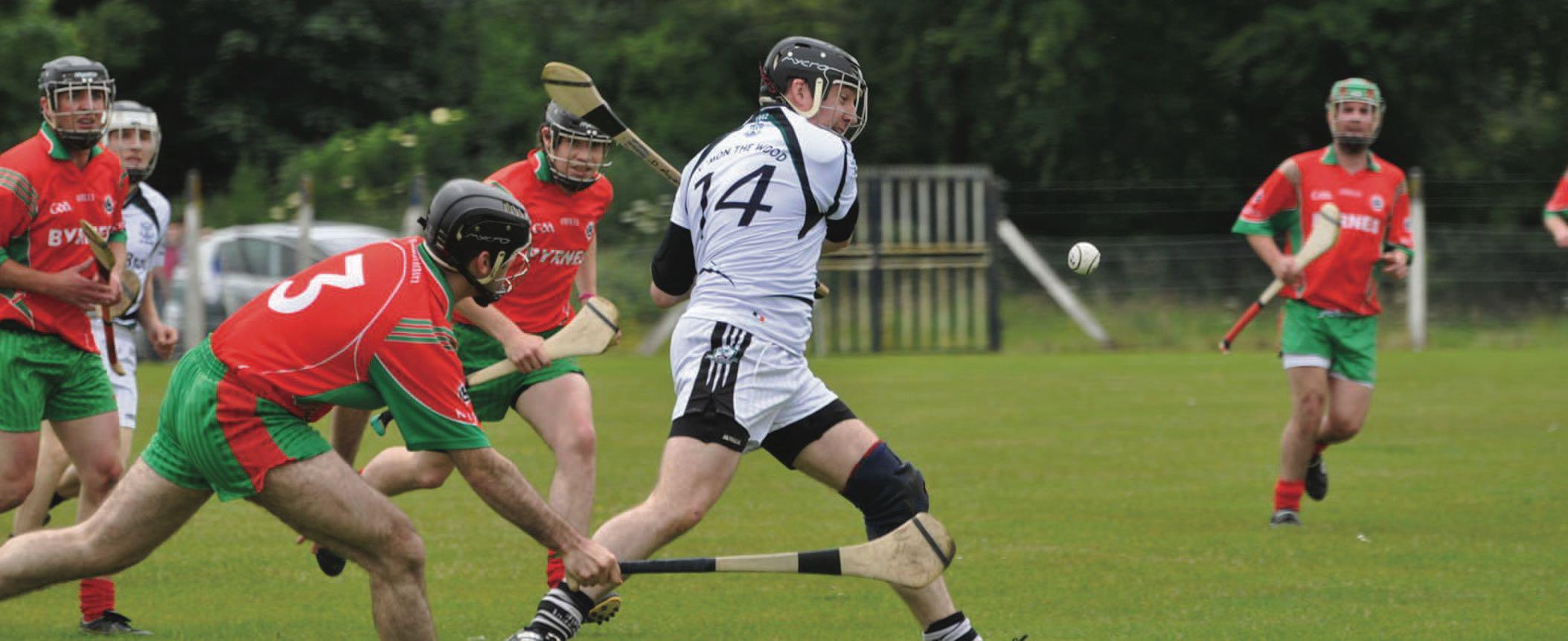Versuchen GOLD - Frei
Philosophy & Hurling: Thinking & Playing
Philosophy Now
|February/March 2024
Stiofán Ó Murchadha knowing how we know.

We are often unconscious of what it is we are actually doing in our actions, including while playing sports. But this is a good thing. If people were explicitly aware of all they do, two major things would follow. Firstly, they would be awed by how amazing they are as organisms; secondly, nothing would get done. Therefore, it is important that we come to intuit certain forms of practical knowledge, in order for acts like hammering a nail into a wall or playing sport to be possible.
Michael Polanyi’s book Personal Knowledge: Toward a PostCritical Philosophy (1958) will support us in philosophically investigating the ancient Irish sport of hurling, which is something like a cross between hockey, lacrosse, rugby – and some might add sword fighting. The first part of this article will explain Polanyi’s epistemology of knowledge – in other words, how we know what we know. After that, we will apply this theory to the game of hurling.
Tacit & Other Knowledge
Polanyi first offers a distinction between focal and subsidiary awareness. Focal awareness is what you’re consciously aware of or explicitly aware of, and subsidiary awareness is what you are less aware of or implicitly aware of. All knowledge has from-to relations because meaning is brought from the subsidiary to the focal which is part of the reason why Polanyi notes that all knowledge must begin with an act of commitment, which is belief. He writes, ‘‘We must now recognize belief as the source of all knowledge’’ (
Diese Geschichte stammt aus der February/March 2024-Ausgabe von Philosophy Now.
Abonnieren Sie Magzter GOLD, um auf Tausende kuratierter Premium-Geschichten und über 9.000 Zeitschriften und Zeitungen zuzugreifen.
Sie sind bereits Abonnent? Anmelden
WEITERE GESCHICHTEN VON Philosophy Now

Philosophy Now
The Possibility- Bearing Animal
Raymond Tallis explores a twilight zone.
7 mins
February/March 2026

Philosophy Now
Amazing Times at the Pub Agora
John Douglas Mullen is a philosophical bar fly on the wall.
8 mins
February/March 2026

Philosophy Now
Friedrich Nietzsche (1844-1900)
Hilarius Bogbinder considers the all too human life of the notorious iconoclast.
11 mins
February/March 2026

Philosophy Now
Heisenberg's Philosophy of Quantum Mechanics
Kanan Purkayastha explains how Werner Heisenberg's 1925 paper turned the quantum theory of the early 1900s into the quantum mechanics of today.
10 mins
February/March 2026

Philosophy Now
Cicero & the Ideal of Virtue
Abdullah Shaikh explores Cicero's ideas about the core Roman principle of virtus.
13 mins
February/March 2026

Philosophy Now
ROPE
Les Jones has a Nietzschean take on a Hitchcock thriller.
6 mins
February/March 2026
Philosophy Now
What Have the Romans Ever Done For Us?
Salve! This issue's theme is Roman Philosophy. But as the rebels in Monty Python's Life of Brian asked, what have the Romans ever done for us? The question seems relevant here; we are philosophers, not archaeologists.
2 mins
February/March 2026

Philosophy Now
Paul Guyer
Paul Guyer is an American philosopher and a leading scholar of both Immanuel Kant and aesthetics. AmirAli Maleki interviews him about Kant's political and moral vision.
9 mins
February/March 2026

Philosophy Now
Identity in the Age of Connectivity
Sara Asran explores the dynamics of identity online.
6 mins
February/March 2026

Philosophy Now
A Very Short History of Critical Thinking
Luc de Brabandere summarises a long history through key figures of thought.
7 mins
February/March 2026
Listen
Translate
Change font size
